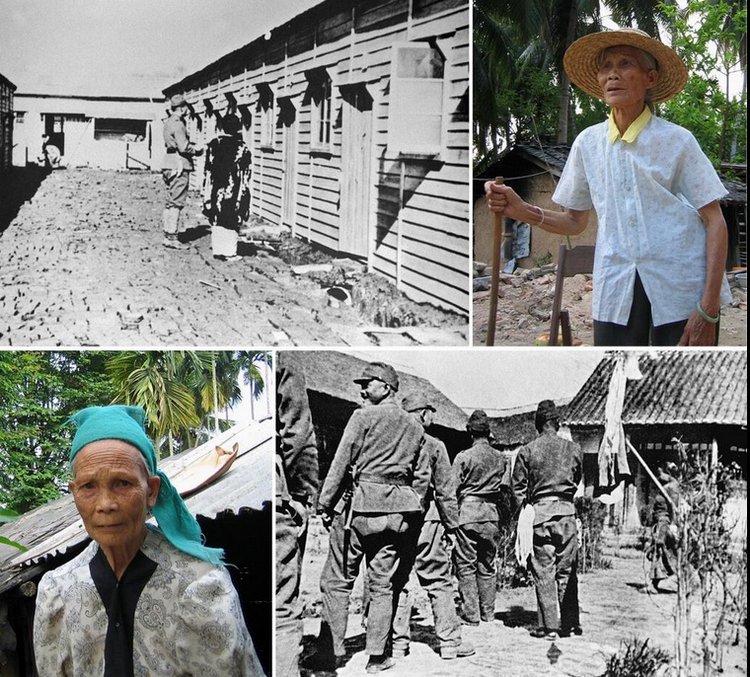Beijing, June 11 (Xinhua) — China on Wednesday rejected Japan’s call for it to withdraw an application to register records of Japan’s wartime sex slaves with UNESCO.
“We will not accept Japan’s unreasonable protest, and will not drop our application,” said Foreign Ministry spokeswoman Hua Chunying said at a daily news briefing.

China asks UNESCO to list archives of Nanjing Massacre & comfort women as “Memory of World”.
Earlier on Wednesday, Japan’s top government spokesman Yoshihide Suga said that Japan had lodged a protest over the application and had asked China to withdraw it.
However, Hua said, “The aim of China’s application is to firmly bear history in mind and cherish peace, respect human dignity and prevent behaviors against humanity, human rights and human beings from happening again.”
On Tuesday, Hua confirmed that China had applied to UNESCO to list documents relating to the 1937 Nanjing Massacre and Japan’s wartime sex slaves, so-called “comfort women,” on the Memory of the World Register.
Created in 1997, the Memory of the World Register protects the world’s documentary heritage.
Historians estimate that 200,000 women were forced into sexual servitude by Japanese forces during WWII, most of them from countries invaded by Japan at that time.
“Comfort women,” a tragic group that deserves remembrance
The war-time sex slaves, or “comfort women,” who were forcefully drafted by the Japanese army during World War II, should be remembered forever for their suffering, so as to remind the world that history should never repeat itself.
China has applied to UNESCO for the latter to preserve archives related to atrocities committed by the Japanese military 70 years ago.
This move, predictably, was criticized by the Japanese government. According to Yoshihide Suga, the chief cabinet secretary of Japan, it has “lodged a protest and asked China to withdraw the application.”
But in 1993, Suga’s predecessor, Yohei Kono, acknowledged in a statement that the Japanese government and its army were involved in the recruitment of between 200,000 and 400,000 girls and women and forced them to serve in brothels.
Less than three months ago, the Japanese government declared its adherence to its official 1993 apology. “Replacing the Kono Statement won’t happen and there is no way we will revise it,” Suga said at that time.
If this statement was sincere, why should the Japanese government react so strongly to China’s application?
There are many reasons why China should list comfort women documentary evidence.
It is consolation to victims like Lin Yajin. She was forced to serve in a brothel for three years. Her sexual trauma left her infertile. After decades of lonely life, she passed away in destitution last year. “I could never forget the humiliation of those days,” she said repeatedly before her death.
Secondly, it encourages advocates like Yayori Matsui. Her father had been a soldier and told her the bitter stories of war when she was young. Matsui spent years looking for comfort women, bringing them to court and helping with their lawsuits. She also founded a museum in Japan so as to keep evidence of the atrocities committed by the Japanese army. “Pluck up our spirits and fight,” she wrote at the end of her book.
Thirdly, it is a call of peace to the world, in the same way as other WWII monuments elsewhere in the world.
The Auschwitz Concentration Camp in Poland receives more than one million visitors a year. The shoes, suitcases, spectacles and, most astoundingly, hair from victims serve as reminders of the at least 1.1 million prisoners killed there in the Holocaust.
In Berlin, the Memorial to the Murdered Jews of Europe attracts people’s attention with 2,711 concrete slabs. An underground “place of information” holds the names of all known Jewish Holocaust victims.
“If the victims aren’t remembered, they are killed a second time,” said Auschwitz survivor David Salz of the memorial.
The Japanese troops committed crimes not only against the Chinese, but against Koreans, Dutch, Filipinos,Indonesians and more. As each day goes by, the victims are getting older and leaving the world. They don’t have much time to wait.
But their tragic stories should be known, and each and every one of them deserves to be remembered.